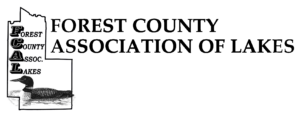Last week I summarized how Climate Change is affecting us in Northern Wisconsin. This week, I will try to summarize the impact on Water and People.
Climate change is bringing warming temperatures and changing precipitation patterns in Northern Wisconsin and these changes are decreasing water quality and changing aquatic ecosystems.
- • Warmer water temperatures and changes in ice on and off dates, duration and thickness of ice are changing the fish species that can live in Wisconsin’s waters. Cool- and cold-water fish are particularly at risk.
- • Warming waters in the Great Lakes are impacting lake ecology, fisheries, and water-quality based recreation. Both increasing precipitation and drought are leading to extreme lake level fluctuations in Lake Superior and Lake Michigan that impact both habitats and structures built along the lakeshore.
- • On the other side of the state, a wetter climate is increasing the volume of water flowing in the Mississippi River and impacting critical backwater habitat and recreational fishing opportunities.
Solutions
- · Manage watersheds to reduce flood hazards and slow sediment and water movement in tributaries
- · Invest in flood risk reduction practices and pre-disaster mitigation programs that help communities address local flood risks and avoid catastrophic losses
- · Manage fisheries and make them more resilient to climate impacts by preventing overharvest,
- protecting productive populations, and preserving stronghold populations of brook trout and other important fisheries
- · Conserve water and encourage water infiltration to reduce the impact of both droughts and floods
- · Establish a long-term water monitoring network and a Wisconsin surface water applied research program to better track and manage surface waters as they respond to climate changes.
How will Climate Change affect people in Northern Wisconsin?
- • Extreme storms and flooding are the most prominent climate impacts being felt by communities across Northern Wisconsin.
- • Planning for these evolving climate challenges will be crucial for communities to maintain a vibrant economy in Wisconsin, reduce health risks, and promote public safety.
- • Reducing greenhouse gas emissions and creating an equitable transition to renewable energy is the best way to minimize the impacts of future warming, protect our economy, and reduce risk to human health.
- • Support for climate resiliency education, planning, and projects will help smaller communities protect their businesses, residents, economy, and infrastructure.
Solutions
- · Help communities become more resilient to climate change impacts by supporting comprehensive planning and community climate preparedness grants
- · Embrace clean energy, walkable communities, public transportation, and green building
- · Protect the most vulnerable in response to extreme weather events and set up timely public communication on climate-health issues
- · Support efforts to develop diverse and sustainable tourism and outdoor recreation and preserve cultural resources
